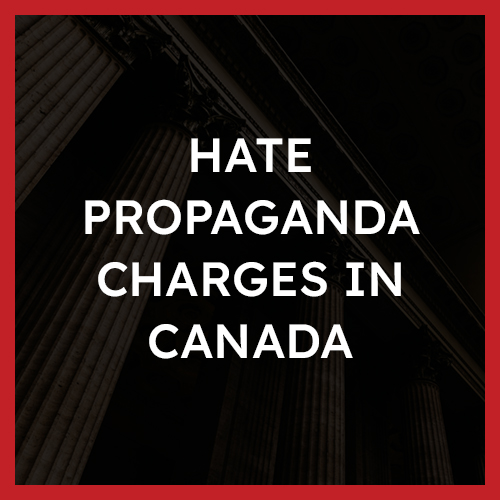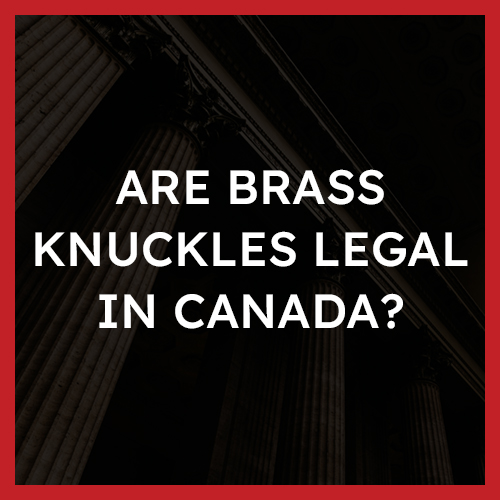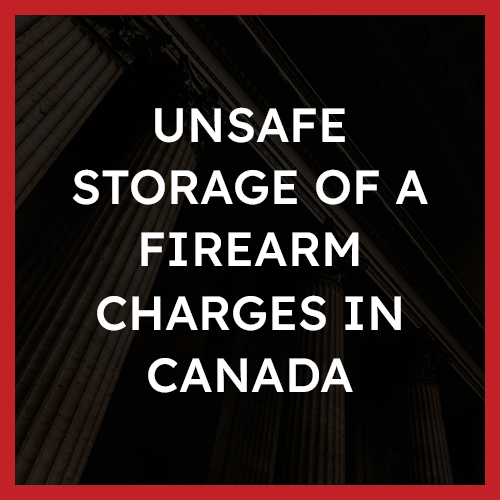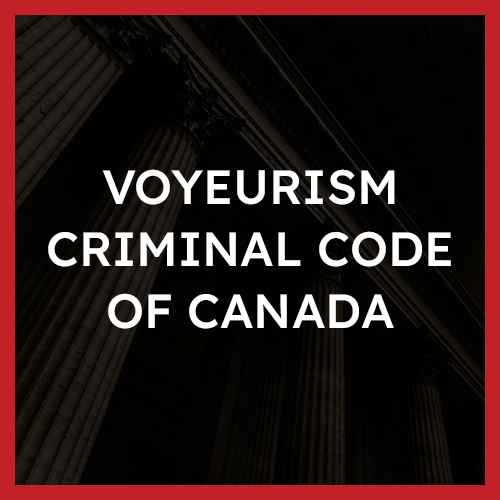Hate Propaganda Laws in Canada Explained
What is a hate propaganda charge?

A hate propaganda charge occurs when a person advocates or promotes genocide. Genocide is defined as the act of killing members of an identifiable group or of deliberately inflicting conditions on an identifiable group calculated to bring about the destruction of that group, in whole or in part. An identifiable group is defined as any section of the public distinguished by colour, race, religion, national or ethnic origin, age, sex, sexual orientation, or mental or physical disability.
Hate propaganda is an indictable offence and may be prosecuted only with the consent of the Attorney General. There is a Defence election of court under s. 536(2) of the Criminal Code.
Examples
Some examples of a hate propaganda charge may include the following:
- Using the internet to promote hatred and genocide, specifically utilizing social media platforms, such as Twitter or Facebook to espouse hateful beliefs against an identifiable group;
- Emailing public figures and media outlets with hateful messaging towards an identifiable group; and
- To otherwise publicly call for, support, encourage or argue for the killing of members of a group based on colour, race, religion, ethnic origin or sexual orientation.
Defences
The defences available to a hate propaganda charge are entirely dependent on the facts of your case.
Some defences to a hate propaganda charge may include:
- The accused’s act of incitement was not direct or public;
- The accused did not have the requisite intent to directly prompt or provoke another to commit genocide;
- The accused was wrongly identified as the person who advocated or promoted genocide; and
- The accused’s Charter rights were violated.
Punishment
A hate propaganda charge is an indictable offence, which entails a maximum punishment as follows:
- Imprisonment for a term not exceeding 5 years.
There are no mandatory minimum penalties for this offence. The maximum is no more than 5 years of incarceration.
A hate propaganda charge can also entail severe consequences for current and future employment opportunities and immigration status.
Overview of the Offence
According to s. 318 of the Criminal Code:
318 (1) Every person who advocates or promotes genocide is guilty of an indictable offence and liable to imprisonment for a term of not more than five years.
Definition of genocide
(2) In this section, genocide means any of the following acts committed with intent to destroy in whole or in part any identifiable group, namely,
-
- (a) killing members of the group; or
- (b) deliberately inflicting on the group conditions of life calculated to bring about its physical destruction.
Consent
(3) No proceeding for an offence under this section shall be instituted without the consent of the Attorney General.
Definition of identifiable group
(4) In this section, identifiable group means any section of the public distinguished by colour, race, religion, national or ethnic origin, age, sex, sexual orientation, gender identity or expression, or mental or physical disability.
The Guilty Act (Actus Reus)
The actus reus for a hate propaganda conviction under s. 318 of the Criminal Code is established by proof, beyond a reasonable doubt, of the following:
- The deliberate act of advocating or promoting genocide publicly, wherein an accused advocates or promotes the destruction of an identifiable group, in whole or in part; and
- Genocide does not need to have been deemed to have occurred (Mugesera v Canada (Minister of Citizenship and Immigration)).
The Guilty Mind (Mens Rea)
The mens rea for a hate propaganda conviction under s. 318 of the Criminal Code is established by proof, beyond a reasonable doubt, of the following
- The accused had the intent to advocate or promote the destruction of an identifiable group, in whole or in part.
Defences
How to Beat a Hate Propaganda Charge
Every case is different. The availability and strength of any defence depend entirely on the specific facts of your case. The strength of any available defence rests on the evidence against you and the precise details of the allegations. However, the following are some possible defences that may be used when fighting a hate propaganda defence:
Factual Innocence
The strongest defence against a hate propaganda offence under s. 318 of the Criminal Code is that the accused did not promote or advocate genocide. If you can show that the facts and the evidence do not support that you intended to advocate or promote the genocide of an identifiable group, then you may have a defence that you were factually innocent. As the actus reus of the offence requires that the act of incitement is direct and public, factual innocence may be proven if the incitement is proven to be private.
Lack of Intent
Lacking the intent to advocate or promote the genocide can be a significant defence in cases involving the advocation or promotion of genocide of an identifiable group. To secure a conviction, the Crown must demonstrate beyond a reasonable doubt that the accused had a specific intent to advocate or promote the genocide of a particular group to a public audience. If the accused can provide evidence or arguments showing that their actions were not intended to advocate or promote genocide of an identifiable group but were a peaceful protest, legitimate political expression, or some other lawful activity, it can serve as a strong defence.
Identity
Depending on the circumstances of your case, a possible defence to a hate propaganda charge may be to raise an identity defence. In this case, for this defence to be raised successfully, you will have to prove that you were not the person who advocated or promoted genocide against an identifiable group.
Any Applicable Charter Defences
The Charter sets out your rights and freedoms before and after your arrest. If the police fail to abide by these rights deliberately or inadvertently, it could aid in your defence. If any of your Charter rights have been violated before or after your arrest, you may be able to have some or all of the evidence that the Crown is relying on to secure a conviction excluded under s. 24(2) of the Charter.
Punishments
The Criminal Code provides for a possible maximum term of imprisonment of no more than 5 years for those convicted of a hate propaganda charge.
Persons found guilty of a hate propaganda charge are eligible for sentencing entailing a discharge, suspended sentence, stand-alone fine, custody, custody with a fine or probation or a conditional sentence order.
Beyond any immediate jail and/or probation sentence you receive, there is also a discretionary DNA Order.
This is authorized as a secondary offence listed under s. 487.04 (c), (d) or (e), and the DNA order can be authorized regardless of if the Crown proceeds summarily or by indictment.
Frequently Asked Questions
Does Hate Propaganda require that a genocide occurs?
A hate propaganda offence does not require a genocide to have actually occurred in order for you to be convicted. In Mugesera v Canada (Minister of Citizenship and Immigration), the Court held that hate propaganda only requires the intention to promote or advocate for the genocide of an identifiable group, and not that the genocide actually be carried out.
Can you go to jail for Hate Propaganda?
If you are found guilty of hate propaganda, you can go to jail. The maximum punishment for this offence is 5 years imprisonment. Therefore, there is a possibility that you can go to jail for a hate propaganda offence.
What is the maximum penalty for Hate Propaganda?
The maximum penalty for hate propaganda under s. 318 of the Criminal Code is five years imprisonment.
Is Hate Propaganda an indictable offence?
Hate Propaganda is an indictable offence. This means that the offender faces greater punishment, such as maximum prison sentences, as compared to summary or hybrid offences, in which the accused may be prosecuted either summarily or by indictment. Indictable offences tend to be more complicated in court and generally have heavier consequences on the offender.
Published Decisions and Articles
Mugesera v Canada (Minister of Citizenship and Immigration) 2005 SCC
The Supreme Court of Canada held that s. 318 of the Criminal Code does not require proof that the genocide had in fact occurred. The act of incitement has to be direct and public. The guilty mind required is an intent to directly prompt or provoke another to commit genocide.
In this case, the applicant’s public speech contained a deliberate call for the murder of Tutsis, which was sufficient to make a finding that he had attempted to incite citizens to act against one another. This finding and the fact that the applicant was aware that the ethnic massacres were taking placed was deemed to be sufficient to make out the necessary mens rea of the offence.
You can read the full decision here.
R v. Balaram-Sivaram [2019] O.J. No. 4999
A Toronto man was found guilty of 10 offences under the Criminal Code, including the rare charge of hate propaganda due to his actions over Twitter and emails that he sent encouraging people to take genocidal action against homosexuals and people of the Jewish faith. The accused sent emails and tweets to many individuals, public figures and media organizations. These included emails sent to a Toronto MP which called for bombs and viruses to be used against Jewish people and homosexuals, describing them as “rotten”, “defective”, and “genetic garbage”.
The Court upheld that the genocide did not have to be carried out in order for the accused to be convicted of hate propaganda. This is currently the only criminal conviction to date of s. 318 of the Criminal Code in Canada.
The case is currently not available to the public online, but you can read an article on the decision here.
Hate as an Aggravating Factor in Sentencing in Canada
Section 318 of the Criminal Code is one of a few specific provisions for hate propaganda and mischief motivated by hatred.
Despite the fact that s. 318 of the Criminal Code is a provision relating to hate, a Department of Justice Review of case law study revealed the uncertain nature of hate as an aggravating factor in relation to sentencing of a hate propaganda conviction. R v Balaram-Sivaram is the only case to date that has considered the advocation and promotion of genocide against an identifiable group with the sentencing provisions of the Criminal Code. In that case, the Court concluded that the offender advocated genocide against several identifiable groups and sentenced the offender, applying hate as an aggravating factor, to three years of imprisonment. Although the judge used hate as an aggravating factor at sentencing, they did not disclose to what degree that affected the sentence, and it therefore remains unclear.
You can read the full article here.
Contact Us
If you have been charged with a criminal offence, visit our location pages to contact our team.
About The Author
Ask A Question
We endeavor to respond to questions within 24 hours. If your matter is urgent, please call our office or submit a request for a free consultation.







